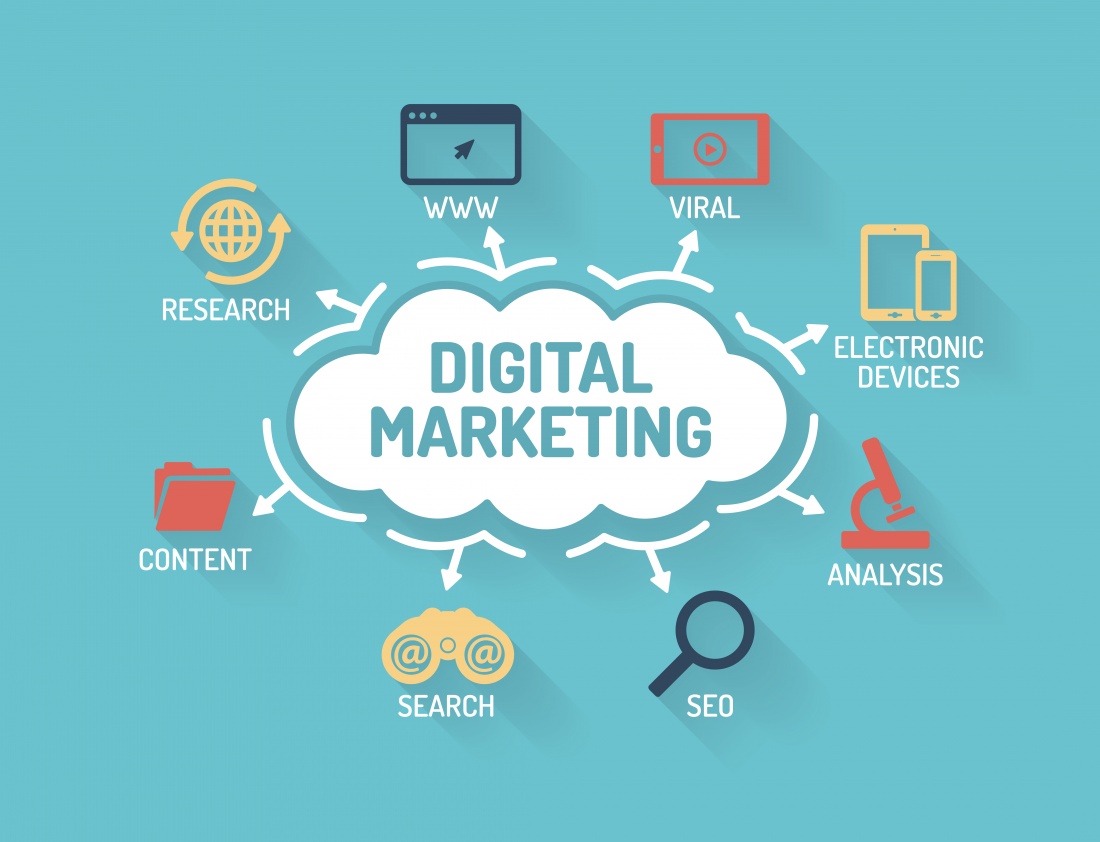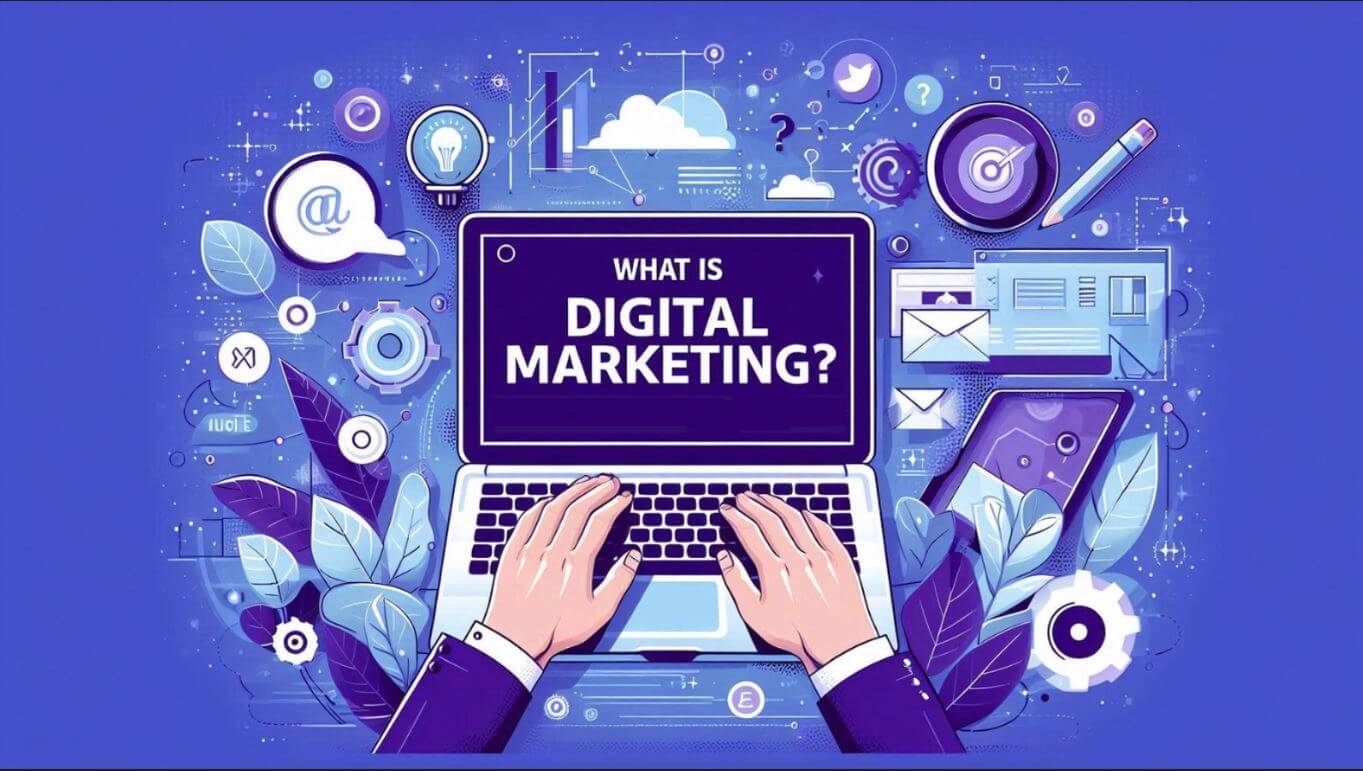Digital marketing has revolutionized the way businesses connect with their audience. For beginners, it can be both exciting and overwhelming to dive into this vast field. From understanding different online platforms to implementing strategies that drive engagement, success in digital marketing requires knowledge, creativity, and adaptability.
This guide explores the essential steps to start your journey in digital marketing, key strategies to adopt, and practical tips for achieving your goals. Whether you’re a small business owner, a freelancer, or looking to boost your personal brand, this beginner-friendly overview will equip you with the tools to thrive in the digital space.
1. Understanding Digital Marketing Basics
Before diving into tactics, it’s crucial to understand what digital marketing encompasses. At its core, digital marketing is about promoting products or services through digital channels such as search engines, social media, email, and websites.
Key Components of Digital Marketing:

- Search Engine Optimization (SEO): Optimizing your website to rank higher on search engines like Google.
- Social Media Marketing: Using platforms like Facebook, Instagram, and LinkedIn to engage with audiences.
- Content Marketing: Creating valuable content to attract and retain customers.
- Email Marketing: Building relationships with customers through targeted emails.
- Pay-Per-Click Advertising (PPC): Running paid campaigns to increase visibility.
These components work together to create a comprehensive strategy that drives traffic, generates leads, and boosts conversions.
2. Building a Strong Foundation for Digital Marketing

To succeed in digital marketing, starting with a solid foundation is essential. This involves identifying your goals, understanding your audience, and creating a structured plan.
Steps to Get Started:
- Define Your Objectives: Determine what you want to achieve, whether it’s increasing website traffic, growing your social media following, or boosting sales.
- Know Your Target Audience: Research demographics, preferences, and online behavior to tailor your strategies effectively.
- Develop a Content Strategy: Plan out blog posts, videos, and other content that aligns with your audience’s interests.
- Set Up Analytics Tools: Tools like Google Analytics and social media insights help track performance and make data-driven decisions.
Starting with clear objectives and an understanding of your audience lays the groundwork for successful campaigns.
3. Mastering the Core Strategies of Digital Marketing
Digital marketing success often depends on implementing a mix of strategies that complement each other. Here’s how to leverage key techniques to your advantage:

A. Search Engine Optimization (SEO):
SEO ensures your website is easily discoverable by users searching for relevant topics. Focus on keyword research, high-quality content, and technical optimization to improve your search engine ranking.
B. Social Media Engagement:
Choose the right platforms for your audience. For instance, Instagram is ideal for visual brands, while LinkedIn works for B2B marketing. Regular posting, engaging with followers, and running ads can amplify your reach.
C. Content Marketing:
High-quality content drives traffic and establishes your authority in the industry. Blog articles, videos, infographics, and podcasts are excellent tools to engage your audience.
D. Email Marketing:
Craft personalized emails to nurture leads and keep your audience informed. Segment your email lists to target specific groups for better results.
E. PPC Advertising:
Invest in pay-per-click campaigns to gain immediate visibility. Platforms like Google Ads and Facebook Ads allow precise targeting to maximize ROI.
4. Measuring Success and Making Adjustments
The digital landscape is dynamic, making it essential to monitor your campaigns and adapt your strategies. Without proper tracking, you risk wasting time and resources on ineffective tactics.
Metrics to Monitor:
- Website Traffic: Use analytics tools to track visitors and identify which pages perform best.
- Engagement Rates: Monitor likes, comments, and shares on social media.
- Click-Through Rates (CTR): Measure how many people click on your ads or emails.
- Conversion Rates: Assess how many visitors take desired actions, like purchasing or signing up.
Regular analysis helps you refine your campaigns, focus on what works, and eliminate what doesn’t.
5. Tips for Digital Marketing Beginners
Starting your digital marketing journey can feel overwhelming, but following these tips can make the process smoother:
- Stay Updated: The digital world evolves rapidly; keep learning through blogs, webinars, and online courses.

- Experiment and Innovate: Test different strategies and don’t be afraid to try new ideas.
- Engage Authentically: Build trust by being genuine in your interactions with customers.
- Leverage Automation: Use tools to streamline repetitive tasks, like scheduling posts or sending emails.
- Network and Collaborate: Partnering with influencers or other brands can expand your reach.
Patience and persistence are key. Digital marketing is a marathon, not a sprint, but the rewards are worth the effort.
Conclusion
Digital marketing offers immense opportunities for businesses and individuals to connect with their audiences and achieve their goals. By understanding the fundamentals, crafting a clear plan, and consistently evaluating your efforts, you can succeed in this dynamic field.
Want more actionable tips on digital marketing? Explore our other articles, share your thoughts in the comments, or get in touch with us for personalized advice. Let’s grow your online presence together!

Leave a Reply